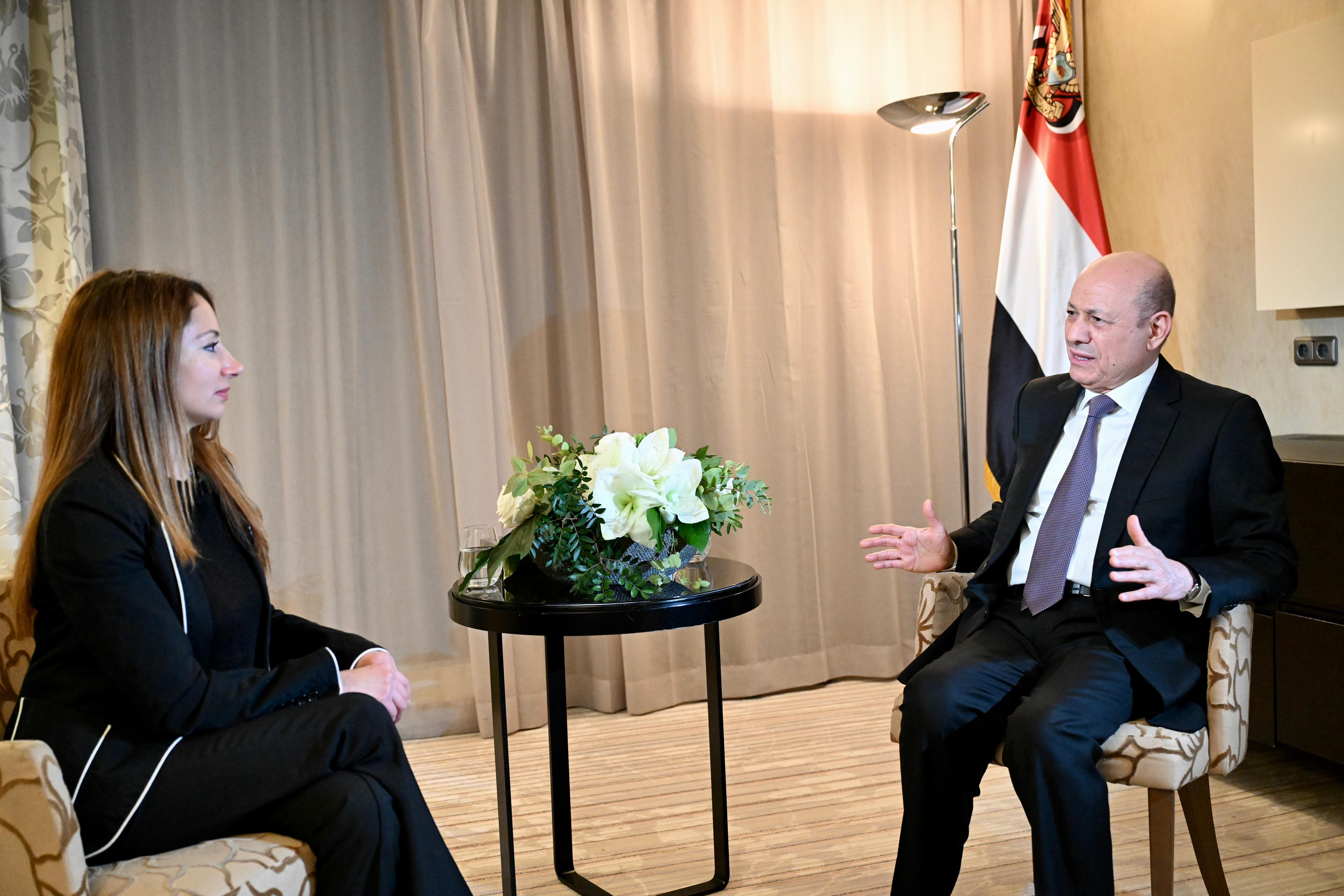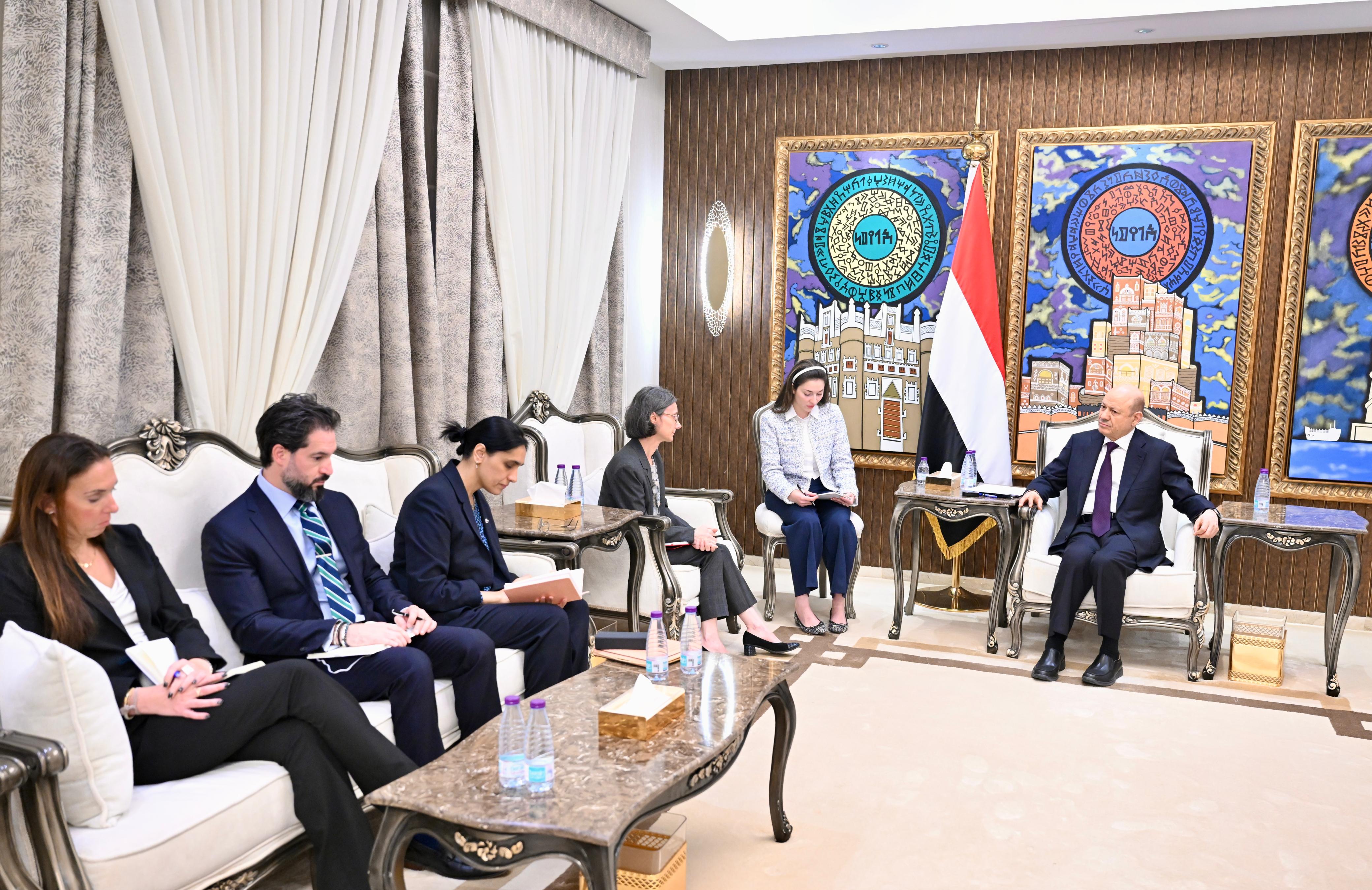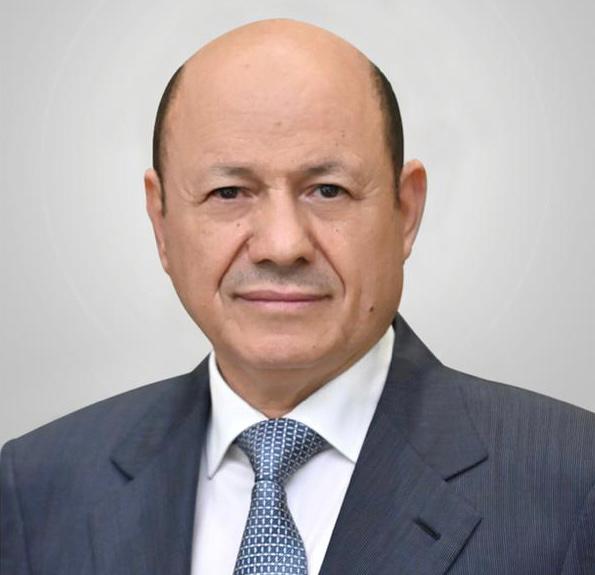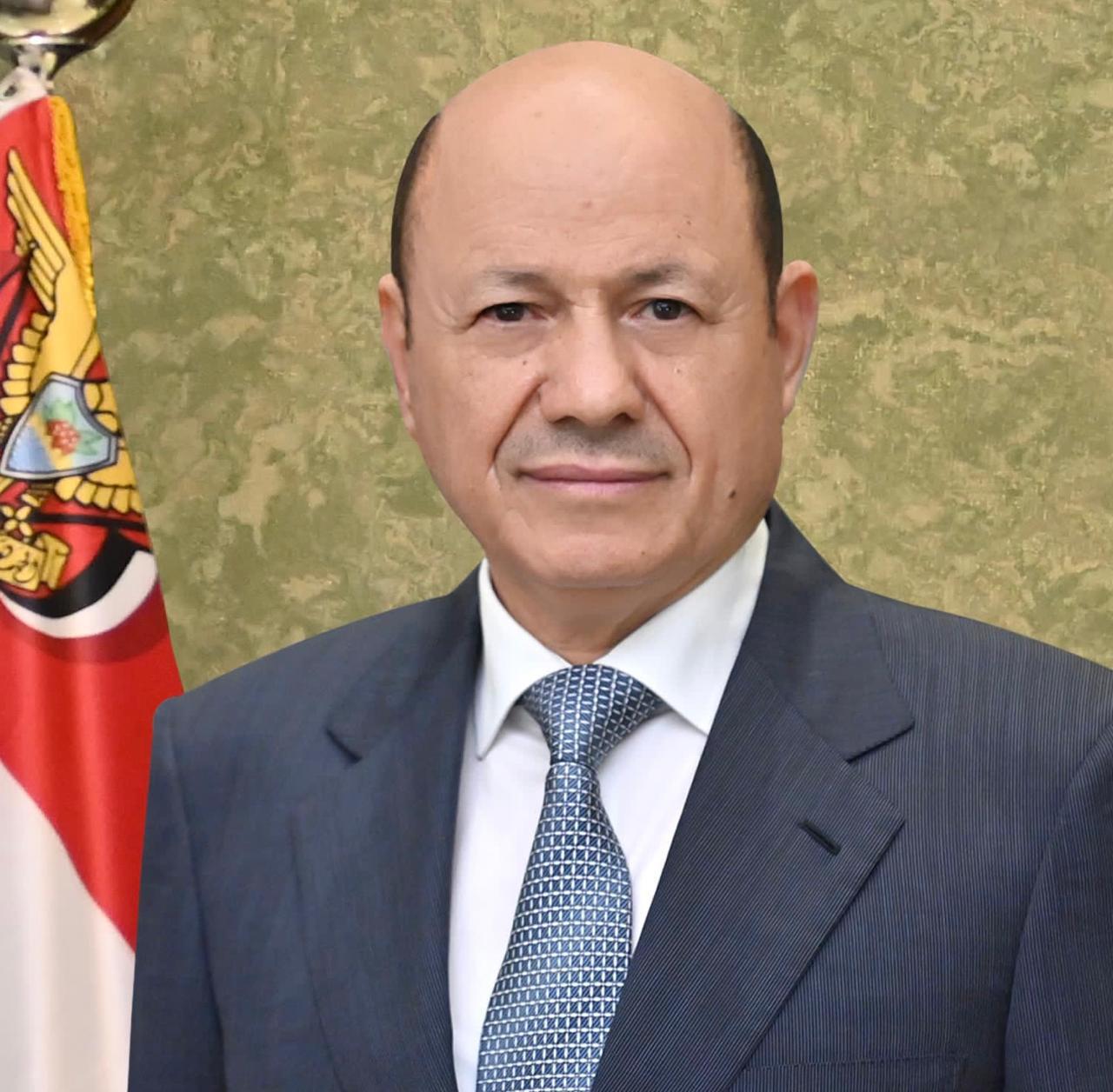
President Al-Alimi: The Houthi militia’s escalation in the Red Sea is escape from peace entitlements
Munich
His Excellency President Dr. Rashad Mohammed Al-Alimi, President of the Presidential Leadership Council, renewed the Council and the Yemeni government’s adherence to the peace option. His Excellency considered the escalation of the terrorist Houthi militia in the Red Sea as an escape from the entitlements and obligations of this path, and an implementation of the Iranian agenda.
His Excellency, the President said in an interview conducted with Al-Arabiya (Al-Hadath) channel, “There are currently two projects in the Arab region, the first led by Iran to spread chaos, terrorism and undermine peace efforts. The second is a strategic project led by Saudi Arabia and Egypt for peace in Iraq, Lebanon, Palestine and Yemen.”
The President of the Presidential Command Council renewed Iran's accusation of continuing to undermine peace efforts in Yemen and threatening international navigation through the continued flow of qualitative and advanced weapons to the terrorist Houthi militia.
The President called on the international community to change the way it deals with the Houthi militia, stressing that these militias are a "military, security, terrorist project, not a political one."
The President of the Presidential Leadership Council called for supporting the Yemeni government to impose its sovereignty over the entire Yemeni territory and restore all Yemeni state institutions. In order to exercise its authority to protect maritime navigation security and contribute to building regional and international security and stability.
The President renewed the Presidential Leadership Council’s support for the efforts led by the brotherly Kingdom of Saudi Arabia, stressing the continuation of process to deal with the road map for bringing peace to Yemen.
He added, "But the Houthis evade the peace process every day and create excuses."
He pointed out that the terrorist attacks targeting the Red Sea and international shipping today, are one of the Houthis' means of escaping the peace process.
He said, "We had experienced the Houthis for long periods, they do not abide by any agreement at all. But despite this, we consider that peace is a Yemeni interest, because it serves the Yemenis and relieves their human suffering."
He added, "Peace must be based on references, including Resolution No. 2216. Therefore we are for peace and the ball is in the court of these militias."
His Excellency made it clear that Iran does not want peace, neither in Yemen nor in other places. He said: if it is serious about that, it must stop smuggling weapons and advanced equipment to the Houthis.
He added: "Unfortunately, after the Saudi-Iranian agreement to calm the situation in the region, international forces were able to seize many ships that were carrying multiple and advanced weapons from Iran heading to the Houthis."
In this context, he referred to the Americans’ announcement two weeks ago that they had seized a ship carrying advanced weapons, including submarine-shaped boats that did not appear on the surface of the water.
His Excellency, the President considered this issue serious, "therefore, we want Iran to actually prove that it wants peace in Yemen and the region through actions, not words."
He stressed, "For Yemenis, peace is life, war is death, and the Houthi slogan is the slogan of death."
He said, "This group does not believe in peace and its slogan originally begins with the phrase “death”. But we still believe that peace is the choice for us and is still the path that will serve our Yemeni people and will achieve security and stability for the region and for navigation in the Red Sea, the Gulf of Aden, and the Arabian Sea."
He criticized the international handling of the Yemeni file during the past period, as many countries worked to obstruct the legitimate government and the coalition to support legitimacy in ending the control of these militias over the state and its institutions. He noted that the Yemenis paid great prices because of this international neglect and lack of interest, which sometimes reached the point of alignment with these militias.
The President of the Presidential Leadership Council explained that the international community was considering the issue as a political issue, which it is not.
He pointed out that the situation has changed today, saying that the international community has come to realize that political approaches with terrorist militias cannot lead to results or stability for neither Yemen nor the region.
His Excellency stressed that the international community has taken a clear military approaching because these militias, unfortunately, political approaches do not work with them.
He added, "Since 2011, we have been trying with this group to be part of the political action, whether through the National Dialogue Conference, the Peace and Partnership Agreement, or through the talks that followed from Bern , Geneva to Kuwait. But these political approaches were used by the Houthis as a way to rebuild their military capabilities, thus carry out new terrorist acts and new attacks.
Regarding the strikes carried out by the Americans and the British against the Houthi strongholds, His Excellency the President explained: “They will not lead to the elimination of the capabilities possessed by the Houthis, but perhaps they may weaken these capabilities.”
He stressed that eliminating these capabilities comes through two things: first, partnership and support for the legitimate government to regain control over all areas under the control of these militias. Second, drying up the sources of weapons that come from Iran.
His Excellency, the President stressed the need for the international community to provide support to the legitimate government. Noting that there are multiple forms of support, including, for example, transferring UN support amounts through the Central Bank in Aden and moving the offices of humanitarian organizations to the interim capital.
He stressed that the legitimate government provides services to citizens and pays monthly salaries to employees. While the Houthi, for nine years until today, has not paid salaries to employees and does not provide services. But rather uses all the money he obtains, whether from inside or outside, to support his military capabilities and the multiple attacks on the Yemenis, whether on the military fronts or elsewhere on cities or hitting vital installations.
Regarding the threats carried out by the Houthi militias in the Red Sea, His Excellency the President indicated that the threats and attacks on the Red Sea had began before Gaza issue; pointing out that the Houthis and Iranians’ exploitation of the Gaza issue is an immoral exploitation. Because the Houthis are besieging Taiz, for eight years from water, food and people's access to the city, which has a population of 4 million. They besiege the legitimate government, by blocking oil exports, targeting oil ports and practicing violence and terrorism against citizens. While, talking about the Gaza issue, this was considered a contradiction between an immoral practice and the adoption of moral issues.
Regarding the designation of the Houthis as a terrorist group, His Excellency the President stressed that this designation would not harm the Yemenis. The evidence for this is that during the early stages of the war imposed by the terrorist militias on the Yemenis in the years 2015 and 2016, the port of Hodeidah was closed and all materials and goods were coming to the port of Aden and Mukalla. It was transported to areas controlled by the Houthi militias, at cheaper prices than it is today.
Regarding the Yemeni-Saudi relationship, His Excellency the President said, “Saudi Arabia has always been with the Yemenis in all circumstances. Our relationship with it is not fleeting, but rather is deep and historical. We have long borders, more than 1,400 km, we have 3 million Yemeni workers, immigrants and expatriates in Saudi Arabia and rather have 200 thousand students in primary and secondary schools in Saudi Arabia.

President of Leadership Council Receives Ambassadors of France and United Kingdom and U.S. Chargé d’Affaires
His Excellency Dr. Rashad Mohammed Al-Alimi, President of the Presidential Leadership Council, received today, Sunday, Ms. Catherine Corm Kammoun, Ambassador of the French Republic, and Ms. Abda Sharif, Ambassador of the United Kingdom

President of the Leadership Council Leaves Aden for Consultations on National Developments
Fri ، 05 Dec 2025 05:59

